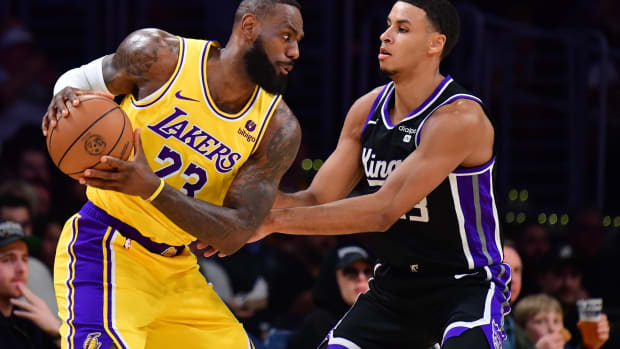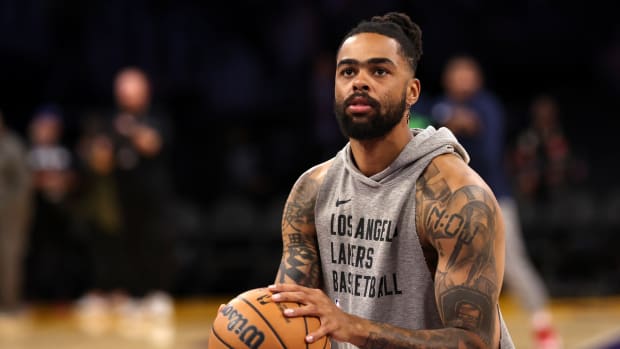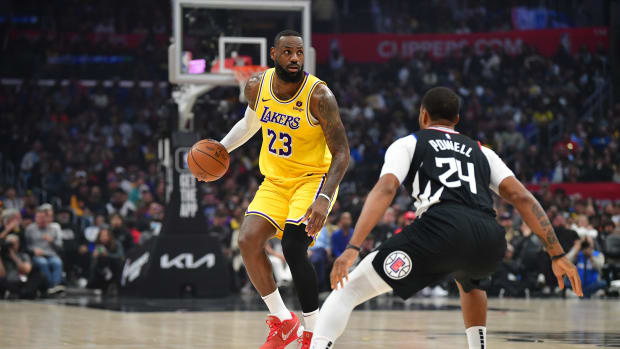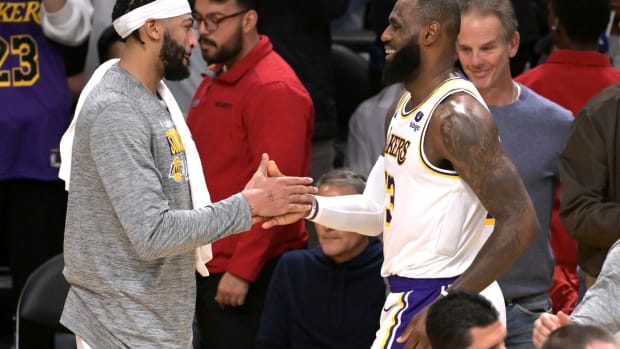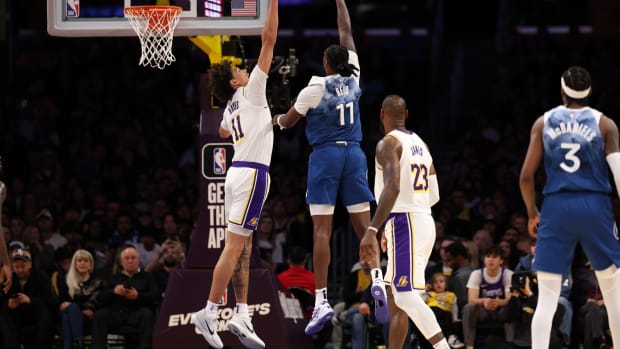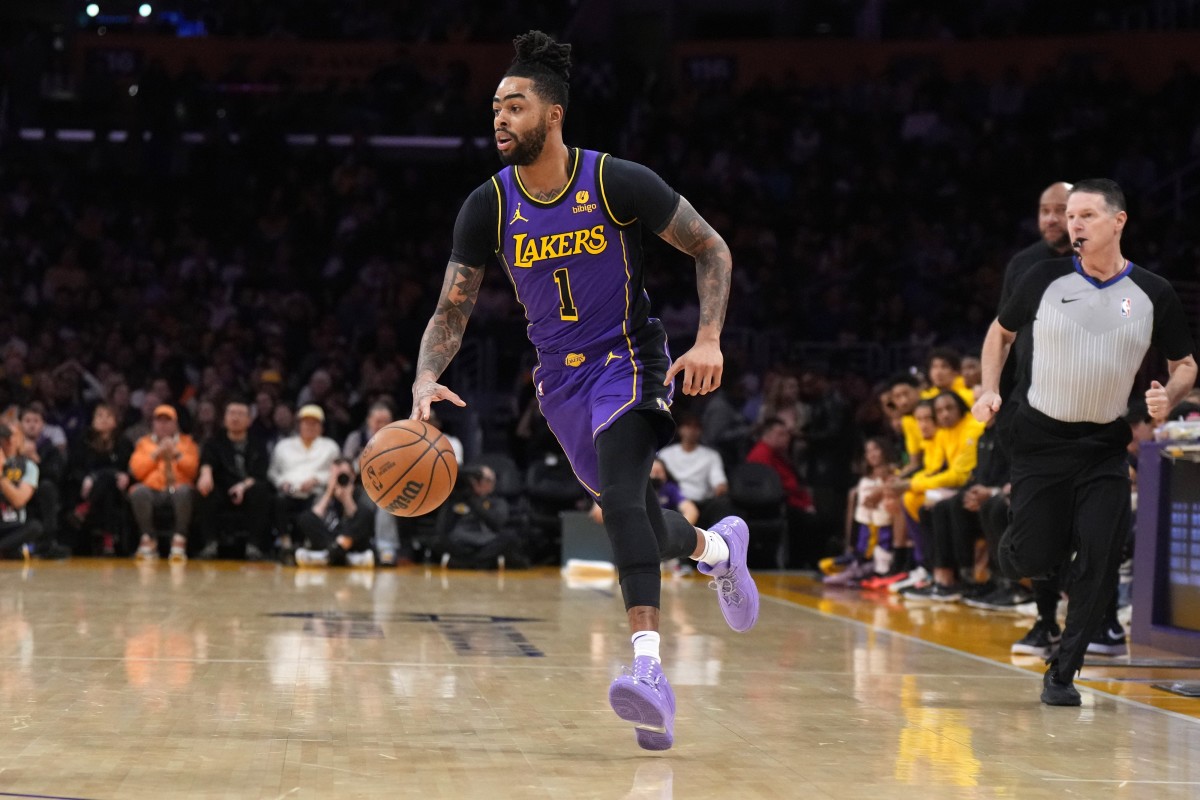
The Lakers Should Not Trade D'Angelo Russell
Your Los Angeles Lakers find themselves in a familiar position as the trade deadline approaches, with speculation swirling about potential moves and roster shake-ups.
One name that frequently surfaces in trade discussions is veteran guard D'Angelo Russell. But recent performances indicate that parting ways with him may not be the wisest decision.
Over the past three games, Russell has showcased his scoring prowess and playmaking abilities, averaging an impressive 27 points per game on efficient shooting percentages of 60.9% from the field and 50% from beyond the arc. This resurgence coincides with his return to the starting lineup, raising questions about the logic behind trading a player who is currently performing at such a high level.
As the Lakers navigate the trade deadline landscape, the prevailing sentiment is that they must orchestrate a significant move. However, the proposed scenario involving a trade for Atlanta Hawks' Dejounte Murray, with Russell and picks in the mix, might not be the game-changer the Lakers need. The question arises: Why disrupt a positive on-court dynamic by parting with a key contributor, especially one who played a pivotal role in the team's journey to the Western Conference Finals?
While I'm for keeping Russell, that could all change if the purple and gold can trade for a player who could make LA an immediate contention for a championship. The Lakers require a player who can deliver on multiple fronts—knocking down shots, excelling in three-point shooting, finishing at the rim, and creating opportunities for teammates. It might be worth exploring if a trade can secure such a player and elevate the team's championship aspirations.
But you could argue that Russell provides all that.
The rumored players linked to the Lakers—Murray, Bruce Brown, Terry Rozier, or Tyus Jones—don't necessarily meet the criteria for a transformative trade. The challenge lies in finding a balance between strengthening the roster and ensuring the departure of Russell doesn't compromise the team's overall performance.
Acknowledging the concerns about Russell's consistency, especially based on past playoff experiences, adds a layer of complexity to the decision-making process. The looming question is whether Russell can maintain his current level of play and prove himself in the postseason. With their eye on another deep playoff run, the Lakers must weigh the potential risks and rewards of retaining Russell.
The sentiment is clear: the Lakers should not trade Russell unless the proposed deal aligns with the team's immediate championship aspirations and offers a substantial upgrade. The decision-making process in the coming weeks will undoubtedly shape the Lakers' trajectory for the rest of the season and beyond.

